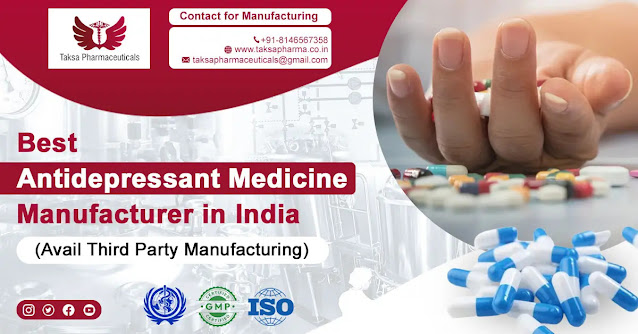Cost-Effective Strategies for Pharma Third Party Manufacturing in Baddi
Pharmaceutical third-party manufacturing has emerged as a viable solution for companies looking to expand their product lines without the burden of high capital investment. Baddi, known as a hub for pharmaceutical manufacturing, offers numerous advantages for businesses aiming to enhance their operational efficiency. This article explores several cost-effective strategies that companies can adopt in the realm of pharma third-party manufacturing in Baddi.
Understanding
the Landscape
The region is home to numerous
manufacturing units and has garnered attention for its favorable business
environment, including tax incentives and streamlined regulations. These
factors contribute to lower operational costs, making it an attractive
destination for third-party manufacturing.
Streamlining
Operations
To maximize cost-efficiency,
companies engaged in pharma third-party manufacturing in Baddi should focus on
streamlining their operations. This includes optimizing production processes to
reduce waste and improve yield. Implementing lean manufacturing principles can
lead to significant savings by minimizing excess inventory and improving
workflow efficiency. Additionally, companies can benefit from adopting
automated systems for production and quality control, which can reduce labor
costs and enhance product consistency.
Strategic
Supplier Relationships
Building strong relationships with
suppliers can significantly impact the overall cost of production. By
collaborating closely with raw material suppliers, pharmaceutical companies can
negotiate better pricing and ensure a steady supply chain. This is particularly
important in Baddi, where numerous suppliers are located, offering
opportunities for bulk purchasing and cost reduction. Establishing long-term
partnerships can also lead to improved product quality and reliability.
Regulatory
Compliance and Quality Assurance
Investing in regulatory compliance
and quality assurance might seem like an additional expense, but it can
actually save costs in the long run. Ensuring that products meet the necessary
standards can prevent costly recalls and penalties. In Baddi, where the
regulatory framework is well-defined, companies can leverage local expertise to
navigate compliance effectively. This proactive approach not only mitigates
risks but also enhances the company’s reputation in the market.
Focus
on Core Competencies
Pharmaceutical companies should
consider focusing on their core competencies while outsourcing non-core
functions to third-party manufacturers in Baddi. By concentrating on research
and development, marketing, and customer engagement, companies can drive growth
without the complexities of managing manufacturing operations. This strategy
allows for better allocation of resources and can lead to more innovative
products entering the market.
Leveraging
Technology
Companies should invest in advanced
technologies such as data analytics and artificial intelligence to optimize
production processes. By analyzing production data, businesses can identify
inefficiencies and make informed decisions that drive down costs. In addition,
adopting digital platforms for inventory management can streamline operations
and reduce overhead expenses.
Conclusion
In summary, the pharmaceutical industry in Baddi presents a wealth of opportunities for companies engaging in
third-party manufacturing. By implementing cost-effective strategies such as
streamlining operations, fostering supplier relationships, ensuring regulatory
compliance, focusing on core competencies, and leveraging technology,
businesses can significantly enhance their profitability. Companies like Taksa Pharma
exemplify the potential for success in this vibrant landscape, demonstrating
how effective strategies can lead to sustainable growth in the competitive
world of pharmaceutical manufacturing.



Comments
Post a Comment